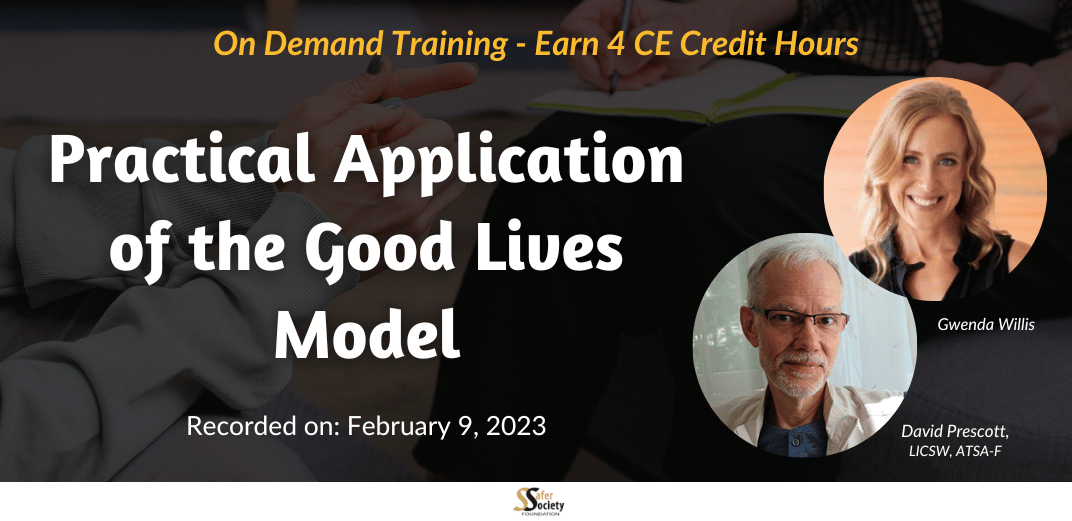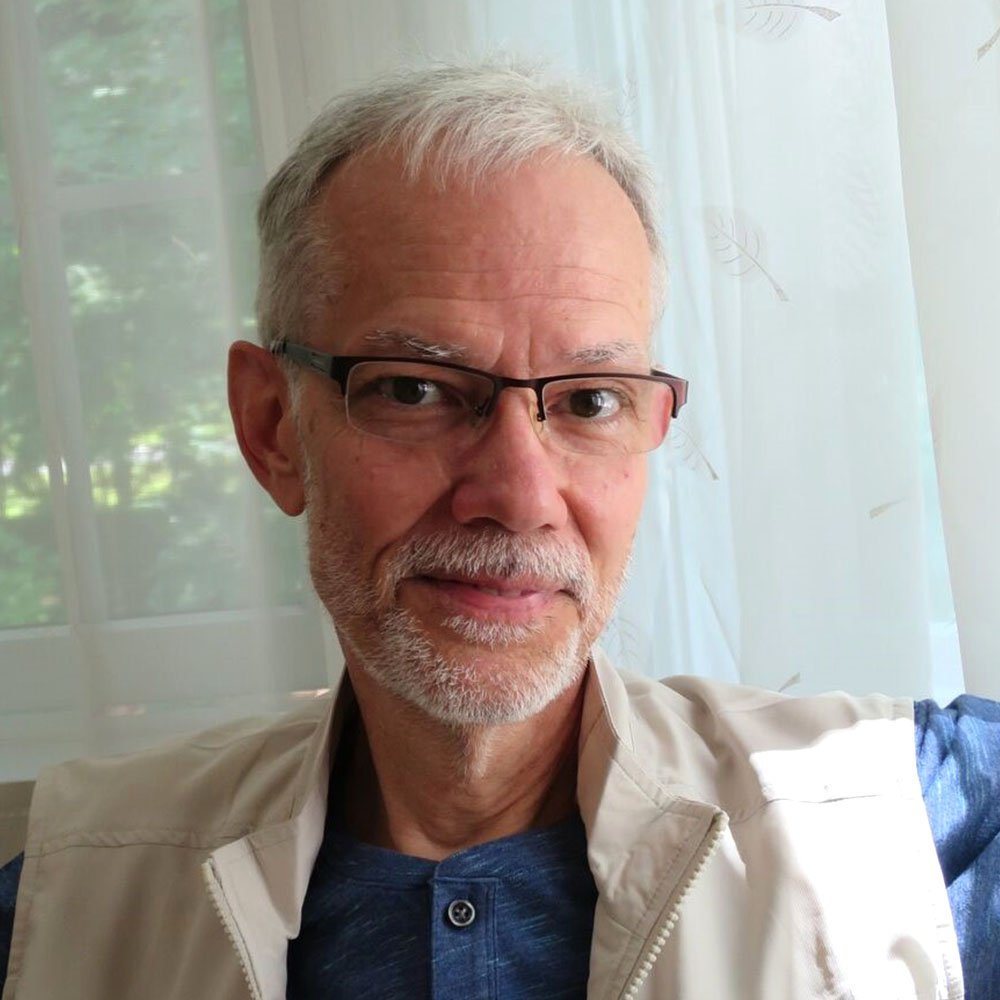
Practical Application of the Good Lives Model
Already purchased an On Demand training?
Click here to access your Safer Society On-Demand Training Center account.
The Good Lives Model (GLM) has become a popular approach to the treatment of people who sexually abuse; however, substantial variation has been observed in its practical application. This four-hour online training focuses on how programs and therapists can best integrate the GLM into treatment with persons who have sexually abused. It is suitable for treatment providers and program administrators working in prison, civil commitment, and community-based settings who wish to integrate the GLM. Preliminary research suggests that, integrated appropriately, the GLM offers potential for improving outcomes of treatment programs that follow a cognitive-behavioral (CBT) approach and that operate according to the Risk, Need, and Responsivity (RNR) principles. For example, research suggests that the GLM’s focus on engaging clients in the treatment process enhances treatment engagement, an important element of program effectiveness. However, misguided or otherwise poor application of the GLM in practice could increase the very risk treatment is designed to prevent and manage. The presenters have assisted programs around the world (for example, New Zealand, Australia, Singapore, Norway, North America, Germany, Italy, and Namibia) in integrating the GLM.
This online training provides practitioners and others with information as to how to translate and integrate the GLM into practice in the overall structure, content, and process of sexual offending treatment, and illustrates key assessment and treatment strategies. The training provides an overview of GLM-based assessment and intervention planning and describes the module or phase-based structure of a RNR/CBT treatment program using the model. Lastly, the online training addresses how typical program modules targeting dynamic risk factors such as sexual and general self-regulation can be developed and integrated using a GLM approach.
Topics covered include:
- How the Good Lives Model (GLM) fits with the principles of risk, need, and responsivity
- The GLM “primary Human Goods” (also known as “common life goals”)
- The GLM goods most often implicated in offending
- Obstacles to implementing a good life plan
- Case formulation and assessment using the GLM
1) Explain the “Primary Human Goods” of the Good Lives Model (GLM), also known as Common Life Goals
2) Distinguish between Common Life Goals that are important to the client in general, and those goals implicated in their offending specifically
3) Explain four kinds of obstacles that clients have experienced to implementing their Good Life Plan
4) Explain GLM-based assessment and intervention planning
5) Distinguish between integration and implementation of GLM
Audience
This training is for professionals working with people who have experienced complex trauma as well as people who have perpetrated abuse. Professionals who will benefit from this training include social workers, psychologists, clinical counselors, and interested paraprofessionals.
Content Level
Disclosure
Continuing Education Approval
American Psychological Association (APA)
Safer Society Foundation, Inc. is approved by the American Psychological Association (APA) to sponsor continuing education for psychologists. Safer Society Foundation, Inc. maintains responsibility for this program and its content.
Association of Social Work Boards (ASWB)
Practical Application of the Good Lives Model, Course #5329, is approved by the Association of Social Work Boards (ASWB) Approved Continuing Education (ACE) program to be offered by Safer Society Foundation. Inc. as an individual course. Individual courses, not providers, are approved at the course level. State and provincial regulatory boards have the final authority to determine whether an individual course may be accepted for continuing education credit. ACE course approval period: 10/24/2023 – 10/24/2025. Social workers completing this course receive 4 Clinical continuing education credits.
Who's Presenting

Gwenda M. Willis, PhD, PGDipClinPsyc
Dr. Willis is an Associate Professor in Clinical Psychology at the University of Auckland, New Zealand, and Registered Clinical Psychologist. Her research and clinical interests focus on strengths-based approaches to psychological assessment and therapy in forensic/correctional settings, trauma-informed care, and sexual abuse prevention. Dr. Willis provides training and consultation to clinicians internationally, including in the application of the contemporary Good Lives Model of rehabilitation. Dr. Willis has authored or co-authored more than 70 peer-reviewed publications and her research has been widely cited. She led the development and initial validation of the SAPROF-SO with co-authors Drs David Thornton, Sharon Kelley, and Michiel de Vries Robbé.

David Prescott, LICSW, ATSA-F
A mental health practitioner of 40 years, David Prescott is the Director of the Safer Society Continuing Education Center. He is the author and editor of 25 books in the areas of understanding and improving services to at-risk clients. He is best known for his work in the areas of understanding, assessing, and treating sexual violence and trauma. Mr. Prescott is the recipient of the 2014 Distinguished Contribution award from the Association for the Treatment and Prevention of Sexual Abuse (ATSA), the 2018 recipient of the National Adolescent Perpetration Network’s C. Henry Kempe Lifetime Achievement award, and the 2022 recipient of the Fay Honey Knopp Award from the New York State Alliance for the Prevention of Sexual Abuse and New York State ATSA. He also served as ATSA President in 2008-09. Mr. Prescott currently trains and lectures around the world. His published work has been translated into Japanese, Korean, German, French, Polish, and Southern Tutchone. He has served on the editorial boards of four scholarly journals.
